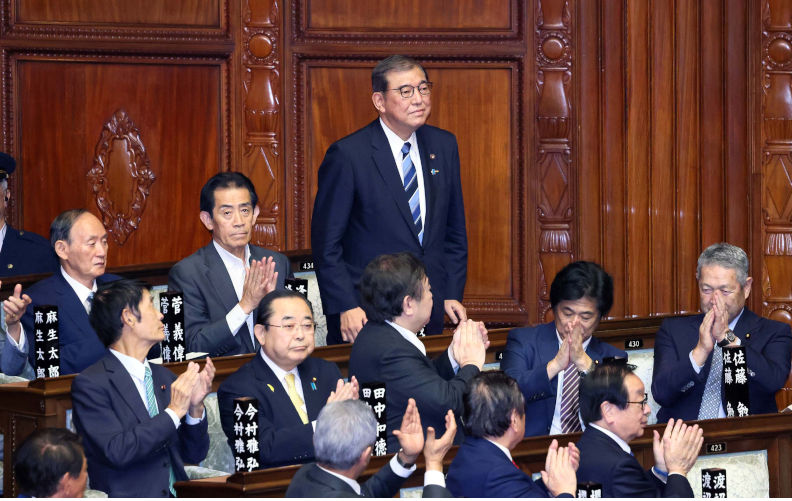Japan's surprising new prime minister
October 5, 2024
Japan’s new prime minister, Ishiba Shigeru, has called for an Asian NATO. But salivating hawks should restrain the glee.
For two reasons.
For Ishiba, as for many other Japanese moderates, a defining moment came in 2004 when the US military prevented Okinawa authorities from investigating the crash of a US military helicopter on the grounds of an international university campus and surrounding residential area . With almost unbelievable rudeness US authorities invoked a status of forces agreement not only to prevent the investigation but even to remove top soil from the accident site.
Ishiba, 67, who became Defence Minister three years later, still talks about US arrogance over this incident.
As minister he uncovered a serious weakness in Japan’s defence arrangements with the US. Washington operated regional alliances on a hub basis - with direct agreements radiating to each client, and the US at the centre, easily able to dominate each relationship. To correct this imbalance Ishiba believes a multilateral security agreement, an Asian NATO including Southeast Asia countries also, is needed. The Quad would not be needed.
And to restore balance he says, tongue-in-cheek, Japan should be allowed a base in Guam.
He supports stronger ties with China, and Beijing has already responded.
To date the world, and Japan, has tended to see the 67-year old Ishiba as weak, with no faction in the ruling Liberal Democratic Party to call his own, and four previous failed attempts for the prime ministership. In fact he is a much more profound thinker than a super-hawk predecessor, the assassinated Abe Shinzo.
A Christian, he has always tended to side with LDP moderates; over strong conservative opposition he supported marriage partners retaining pre-wedding names - a controversial issue in Japan.
In the run up to the election he hammered two themes - Japan’s need for security, from both natural and external disasters, and the need for a complete clean-out of LDP corruption. He also worries about the lack of morale in the troops.
Some lament his main rival, a former defence minister also, and a woman, Takaichi Sanae, could not succeed in the male dominated LDP. Takaichi is a deep conservative, and was a close member of the now-disbanded Abe faction. My guess is the better man won.

